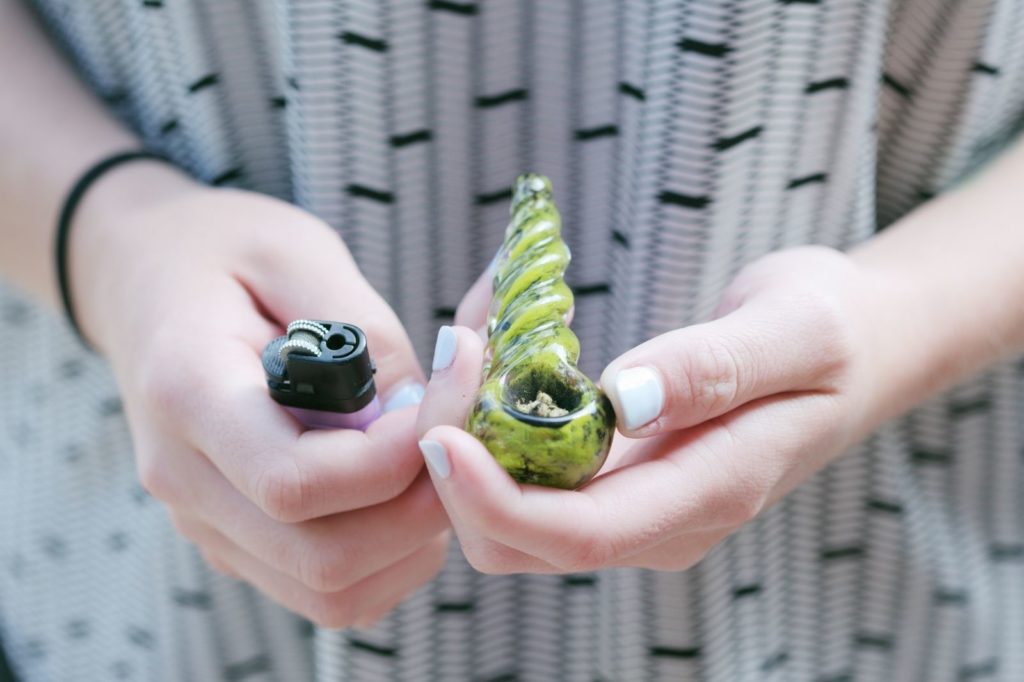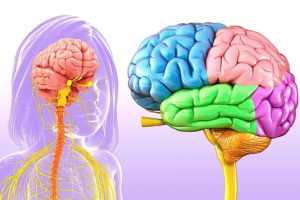Marijuana use among American teenagers is disturbingly common. According to the CDC, 38% of high school students say they’ve tried marijuana at least once. And the prevailing attitude is that smoking pot is “no big deal.”
According to the National Institute on Drug Abuse, 71% of high school seniors say they don’t view marijuana as being very harmful. Yet there is a growing body of evidence that marijuana use – especially in kids who have Attention Deficit Hyperactivity Disorder (ADHD) – can have immediate negative side effects, and can lead to more serious mental illness like psychosis, anxiety or depression.
The rate of marijuana use in the general school population is high; and it’s even more prevalent in kids with ADHD. Does ADHD lead to marijuana use, as kids self-treat their symptoms? Or does marijuana use increase the risks of developing ADHD? Researchers are trying to get some definitive answers on this, but in either case, the implications are serious. Since ADHD is one of the most common mental health disorders in young people, and marijuana is one of the most commonly used illegal substances, it’s no surprise there is cross-over between the two, explained in this article from Dual Diagnosis.org.
“Teenagers are already at a high risk for peer pressure, impulsivity and, poor and risky decisions,” the article explains. “Teenagers with ADHD are even more at risk. These adolescents may react to stress and stressful situations differently than their peers, making drugs and alcohol seem more appealing as well. Many seek out marijuana specifically to calm their restlessness or in an attempt to sooth their ADHD symptoms since marijuana can have a soothing or calming effect.”
Marijuana as treatment for ADHD – an unproven and dangerous approach
For some users, marijuana can have anti-anxiety properties, leading some advocates to claim that the drug can be an effective treatment for ADHD – but that claim is highly controversial.
“There’s no evidence that using marijuana can help with ADHD symptoms,” explains pediatrician Elizabeth Harstad at Boston Children’s Hospital. “In fact, studies show it can worsen executive function and working memory. These are areas where kids with ADHD struggle. Neither medical marijuana, nor street marijuana, which is usually stronger and may contain other chemicals, should be used to treat ADHD.”
One study published in 2013 backs Dr. Harstad’s position, showing that chronic cannabis use may actually alter brain structure in adults and adolescents, and points out the need for continued research on the topic. Clinical psychologist Thomas Brown, Ph.D. and the consulting psychologist for child mental health organization Understood, agrees with Dr. Harstad.
“There is no scientific evidence that ADHD symptoms can be relieved by using marijuana,” Dr. Brown stresses. “There is evidence that it can make symptoms worse. That’s particularly true for younger teens and if marijuana use is frequent. Frequent use also can lead to not caring enough about things that are important to care about, like schoolwork, for example.”
Dr. Brown’s assertions are supported by NIH research that shows that cannabis use before the age of 16 may lead to poorer cognitive outcomes, and a significantly greater proportion of ADHD sufferers began using marijuana before that age.
With the rise of legalized medical marijuana, interest in this topic is growing. Some studies do indicate some short-term improvements in ADHD symptoms, but there’s a darker side to this, as Timothy J. Legg, PhD, CRNP explains in Medical News Today.
“However, other research shows a relationship between marijuana dependence and ADHD,” Dr. Legg notes. He points out that the benefits are short-term at best and lead to more problems in the majority of users.
“Overall, research seems to indicate that, although marijuana seems to alleviate certain short-term effects of ADHD, it may present a heightened risk of dependence and might even make ADHD worse,” Dr. Legg continues.
The long-term negative effects of marijuana use
The National Institute on Drug Abuse (NIDA) has documented several long-term effects of marijuana use, especially in children and young adults, including:
- Functional impairment in cognitive abilities, especially in younger users;
- Increased vulnerability to other substance abuse and addiction, due to changes in the brain’s dopamine reward centers; and
- Increased risk of alcohol abuse, nicotine dependence and other drug use disorders.
Additional research points to an increased risk of more serious conditions like schizophrenia and psychosis in adolescents who use marijuana.
“Evidence grows that marijuana use can cause acute psychosis, bring forward in time a first schizophrenia episode, and worsen the prognosis of patients with psychotic disorders,” writes researcher Joseph M. Rey, MD, PhD.
Dr. Rey references several studies in his article that demonstrate this potential risk, including a Swedish study that found marijuana use during adolescence increased the risk of schizophrenia. Furthermore, psychic disorders are frequently comorbid with ADHD, as this NCBI report summary notes, and can be made worse if a patient is self-medicating or untreated, rather than being on a medically approved treatment plan.
“Not treating ADHD may have consequences because ADHD may predispose patients to drug abuse, which further increases the risk of PD,” note the authors of the report.
Don’t ignore marijuana use and ADHD
While the scientific community continues to research the intersection of marijuana and ADHD, there is more than enough evidence to be concerned. If you suspect your child is using marijuana — and especially if your child is already being treated for ADHD or another mental illness — don’t ignore it, but talk to your child.
“Talk about how it can cancel out the benefits of ADHD medication,” advised Dr. Brown. “And discuss how frequent use can lower motivation and the ability to do well in school. If the problem persists, consult your pediatrician or a mental health professional to get some help.”
If you need helping starting the conversation, talk to your school counselor or healthcare provider. There is too much at stake to take marijuana use lightly — especially when ADHD or other mental health concerns are present.










